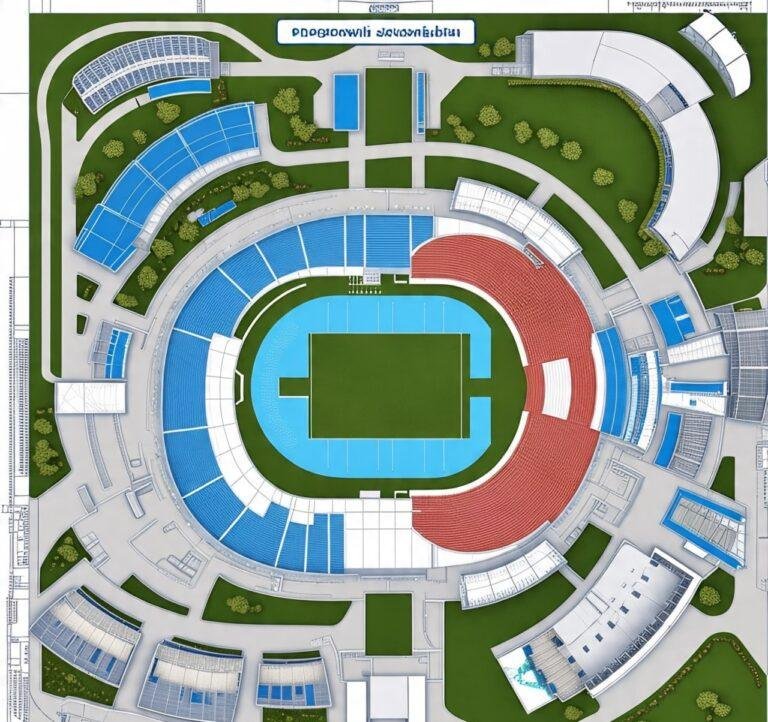2030 Commonwealth Games Bid by Gujarat marks a historic step for Indian sports. The state has officially submitted a proposal to host one of the world’s biggest multi-sport events. This article explores the bid’s goals, infrastructure plans, expected benefits, and its potential to place Gujarat on the global sports map.
What Is the 2030 Commonwealth Games Bid by Gujarat?
The Commonwealth Games is a major international sporting event held every four years. Countries from the Commonwealth of Nations come together to compete in sports like athletics, boxing, swimming, and badminton.
In 2025, Gujarat’s government announced its official bid to host the 2030 edition. If successful, this would make India a host nation for the second time—the first being Delhi in 2010.
Why Gujarat Wants to Host the Games
Gujarat is one of India’s most progressive states. Hosting a global event like the Commonwealth Games is not just about sports; it’s about creating long-term impact
Main reasons behind the bid:
- To promote India’s growing role in global sports
- To boost tourism and international partnerships
- To inspire youth participation in athletics
- To develop world-class infrastructure in smaller cities
- To create new jobs and attract investment
Government officials see this bid as a chance to blend sports, culture, and economic growth in one strategic plan.
Plans for Infrastructure and Sports Complexes
A major part of the 2030 Commonwealth Games Bid by Gujarat includes building new stadiums, training facilities, and athlete villages.
Highlights of Gujarat’s proposal:
- A new International Sports City in Ahmedabad
- Renovation of Sardar Patel Stadium and other major venues
- State-of-the-art aquatic centers, cycling tracks, and arenas
- Green, eco-friendly buildings and transport systems
- Special focus on disabled-friendly infrastructure
These developments aim to meet global standards and provide long-term benefits even after the games.
Economic and Cultural Impact
Hosting such a grand event could transform Gujarat’s economy and cultural reputation. Here’s how:
Positive impacts:
- Increase in foreign and domestic tourism
- Boost in construction, hospitality, and transportation sectors
- Growth in local handicrafts and cultural promotion
- More jobs for youth and sports professionals
- Legacy infrastructure that supports future generations
The government is also planning cultural showcases of Gujarati dance, food, and heritage during the games.
Challenges and Global Competition
While the dream is big, the road is not without bumps. Gujarat faces tough global competition.
Other bidding cities:
- Edmonton, Canada
- Kuala Lumpur, Malaysia
- Hamilton, Canada
Key challenges:
- Meeting strict Commonwealth Games standards
- Managing budget constraints and timelines
- Addressing climate and environmental concerns
- Ensuring public support and safety
Experts believe that early planning and transparency are key to overcoming these hurdles.
Public and Expert Reactions
The 2030 Commonwealth Games Bid by Gujarat has received mixed but mostly positive reactions.
Supporters say:
- “A great step forward for India’s sports future.”
- “Finally, infrastructure will reach tier-2 and tier-3 cities.”
Critics say:
- “Funds could be used better in education and healthcare.”
- “Large-scale events can cause displacement and pollution.”
However, the state has promised to maintain a people-first and eco-friendly approach.
🔗 You can read our guide on India’s sports infrastructure reforms

For more on the Commonwealth Games process, visit the Commonwealth Sport Official Website
Conclusion: Gujarat’s Golden Goal
The 2030 Commonwealth Games The bid by Gujarat is more than just a plan to host games—it’s a vision for India’s future in global sports. With the right planning, community support, and execution, Gujarat could write a new chapter in India’s athletic history.
Interested in how this bid unfolds? Stay tuned for updates on Gujarat’s Commonwealth journey and follow our blog for more sports news!










